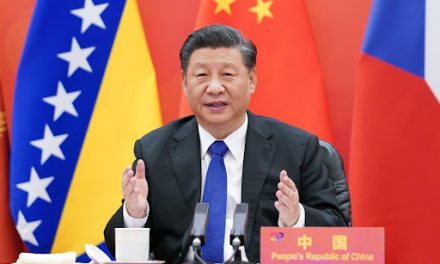If you are watching the news or reading the paper, then you are aware that there has been some strain between the U.S. and China as of late. Well, the tension between the two in terms of trade will deepen this 2019. Recently, there has been news that the U.S. will start limiting Chinese stocks. This limiting of shares includes curbing its pension funds’ investment from the Chinese stock market. Consequently, sizeable Chinese stock KraneShares CSI China Internet ETF or simply KWEB was reported to fall at 3.8%. According to some analysts, this could be the result of the U.S. trying to one-up China in the next U.S.-China trade talks.
However, Monica Crowley, the treasury assistant secretary for public affairs of the U.S., made a statement rebutting such claims. According to her, the U.S. welcomes investments from China and does not plan to obstruct their shares in the U.S. stock exchange shortly. If Monica Crowley is telling the truth, then that seems to be much better for the U.S. For according to Tsinghua University’s professor of finance, Ning Zhu, restricting Chinese investments will not only be challenging to implement but would also negatively affect the U.S. market. As, according to him, finance is hard to track. In contrast, many growing Chinese companies prefer to in-list in the U.S. to improve their label and their access to dollars while China’s stock market is having a difficult time in acquiring foreign investors. Thus how could limiting Chinese investments affect the U.S. negatively?
U.S. May Miss Out on Funds and Bank Growth
As China’s financial system wishes to be a part of the international markets, bountiful investors are eager to be a part of the world’s second-largest economy and its growth potential. Moreover, if China’s financial system is well-managed, it could become the world’s biggest economy in 15 years more or less. U.S. stock giants are also well-aware of this. For example, some U.S. stock giants such as MSCI which is the global stock index provider, Bloomberg Barclays Global Aggregate Index, and J.P. Morgan do choose or plan to add Chinese bonds in their index funds. As a result, numerous Americans will indirectly become investors of the Chinese capital markets. These investments, according to analysts, will result in long-term growth for the U.S. Thus, if China bans investments from the U.S., the U.S. will have a significant loss. Moreover, according to Andrew Batson and Lance Noble of Gavekal Dragonomics research firm, the U.S. capital markets have gained billions of dollars from over 200 Chinese companies; this includes massive companies such as Alibaba.
According to Peking University’s finance professor Michael Pettis, if U.S. capital that could have gone to China simply stays in America, American net import capital will rise consequently causing a rise in the U.S.’s present account deficit. Thus, according to Zhu, not only will U.S. Index and Mutual funds be missing out, but U.S. banks as well. China is now opening its doors to foreign investment in its financial service industry. These foreign investments include letting a foreign bank be a significant stock owner of China’s local securities joint venture.
Furthermore, China’s policymakers are allowing primary foreign control of its financial ventures. China’s bond trading and stock links with Hong Kong have also made tapping into China’s market easier for foreign investors. As a result, MSCI Inc., an index compiler, including Chinese securities to its international benchmark.
China’s Fraud and Under-Policing Issues
Why would the U.S. be so cautious of China then? Plenty of Chinese companies, which include its giant and world-renowned companies, have seriously questionable accounting. It is not difficult to get away with this as China’s capital is readily available, its economic growth is stable, and its markets are not well-policed. Moreover, the Chinese market’s financial statements are not reliable. Its economic data, as well as credit ratings, are questionable. Analysts and investor commentaries are also censored.
Well, China seems to lack the regular supervision of its companies. According to a CEO of an investment research firm in Stansberry China, James Early, Chinese companies who committed fraud in 2010 were not punished by China. Even though China’s capital markets are one of the biggest in the world, they fall short when it comes to governance.
According to Peking University’s Guanghua School of Management accounting professor, Paul Gillis, it has been suspected for some time now that Chinese companies have a propensity to manufacture results if needed. Moreover, according to William McGovern, who is a partner at Kobre & Kim and was an enforcer at the Securities and Exchange Commission of the United States, fraud issues have created a negative hover over Chinese companies wanting to be part of the U.S. markets.
FTSE Russell, a prominent British provider of the stock market, did not put in China in its government bond index because of China’s reputation to take a long time to settle its accounts and its dearth of trading activity.
Moreover, it was reported that in 2018, over 65% of China’s companies part of the Morgan Stanley Capital International index was controlled by its state.
Nonetheless, it is still known that China’s policymakers, in the face of a decelerating economy and heightened pressure to its banking system, is relentlessly making China’s bond and stock markets a big part of its funding companies.














